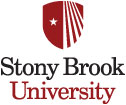Newswise — STONY BROOK, NY -- March 18, 2024 -- Stony Brook University School of Communication and Journalism (SoCJ) presents, “Coping with Crisis: Journalists on the Frontline,” which will address the efforts of reporters, mental health and resilience started by the School of Communication and Journalism (SoCJ) over a year ago.
The School of Communication and Journalism’s Marie Colvin Center for International Reporting will host this year’s Marie Colvin Distinguished Lecture for the first time at the SUNY Global Center at 116 E 55th St, New York, NY 10022 on Monday, March 25 at 3pm, ET.
The conversation will begin with a panel discussion featuring:
Bedel Saget, Multimedia Editor, New York Times
Louise Callaghan, Senior U.S. Correspondent, The London and Sunday London Times
Lucy Westcott, Emergencies Department Director, “Committee to Protect Journalists”
Kate Porterfield, founding member of the “Journalist Trauma Support Network, Columbia's Dart Center”
The Wall Street Journal’s (WSJ) Emma Tucker will deliver the keynote address. During her remarks, she is expected to discuss Evan Gershkovich, the WSJ reporter who was arrested in Russia for his coverage of the war in Ukraine almost exactly one year ago (March 29, 2023). Tucker will also address the mental and emotional toll that reporters often face, both in covering traumatic events and in coping with digital and physical attacks; and how reporters can prepare and advocate for their health in the face of these challenges.
“This year’s Marie Colvin Distinguished Lecture will be an exceptional event, bringing together an illustrious group of reporters and those who work so hard behind the scenes to help keep those reporters safe,” said Laura Lindenfeld, dean of the SoCJ and executive director of the Alda Center for Communicating Science. “As educators, journalists and thought leaders, it’s so important to have these conversations and to bring people together in these kinds of discussions. Journalism and media have a critical role to play in helping to create a better, safer world, but that can only be accomplished if the reporters themselves are protected and supported.”
“The physical, mental and emotional problems that reporters face remain as present as they were when Marie was killed 12 years ago,” said Sarah Baxter, director of the Colvin Center and visiting international journalism instructor. “What has changed is that media organizations are becoming more engaged in the impact of trauma on those who are telling the stories that keep us informed. The anniversary of Evan’s arrest in Russia is a particularly critical time to be having these conversations.”
For more than a year, Baxter has been hosting conversations and working with students to conduct research about reporters and their mental health. Last year’s Colvin Lecture featured a panel of experts from Amnesty International, the New York Times and Stony Brook’s Renaissance School of Medicine to begin the conversation. In the fall, the Center received a grant from the Solutions Journalism Network to create a toolkit to help journalists cope with the mental toll of crisis reporting. When complete, the toolkit will be made available to students and professional journalists and used to inform and update SoCJ journalism courses. The Colvin Center also hosted a conversation with Jodie Ginsberg of the Committee to Protect Journalists about reporting in Gaza after the Oct. 7 attacks.
The SoCJ was named one of four Solutions Journalism Hub Institutions in 2022, charged with helping to convene journalists, journalism educators and students around an approach to reporting centered around responses to problems, rather than only the problems themselves.
For those unable to attend in person, the lecture will be livestreamed from this link.
# # #
About Stony Brook University
Stony Brook University — New York’s flagship university and No. 1 public university — is going far beyond the expectations of today’s public universities. It is part of the State University of New York (SUNY) system. With nearly 26,000 students, more than 2,900 faculty members, more than 200,000 alumni, a premier academic healthcare system and 18 NCAA Division I athletic programs, Stony Brook is a research-intensive distinguished center of innovation dedicated to addressing the world’s biggest challenges. The university embraces its mission to provide comprehensive undergraduate, graduate and professional education of the highest quality, and is ranked as the #58 overall university and #26 among public universities in the nation by U.S. News & World Report’s Best Colleges listing. Fostering a commitment to academic research and intellectual endeavors, Stony Brook’s membership in the Association of American Universities (AAU) places it among the top 71 research institutions in North America. The university’s distinguished faculty have earned esteemed awards such as the Nobel Prize, Pulitzer Prize, Indianapolis Prize for animal conservation, Abel Prize and the Breakthrough Prize in Mathematics. Stony Brook has the responsibility of co-managing Brookhaven National Laboratory for the U.S. Department of Energy — one of only eight universities with a role in running a national laboratory. In 2023, Stony Brook was named the anchor institution for The New York Climate Exchange on Governors Island in New York City. Providing economic growth for neighboring communities and the wider geographic region, the university totals an impressive $7.23 billion in increased economic output on Long Island. Follow us on Facebook https://www.facebook.com/
